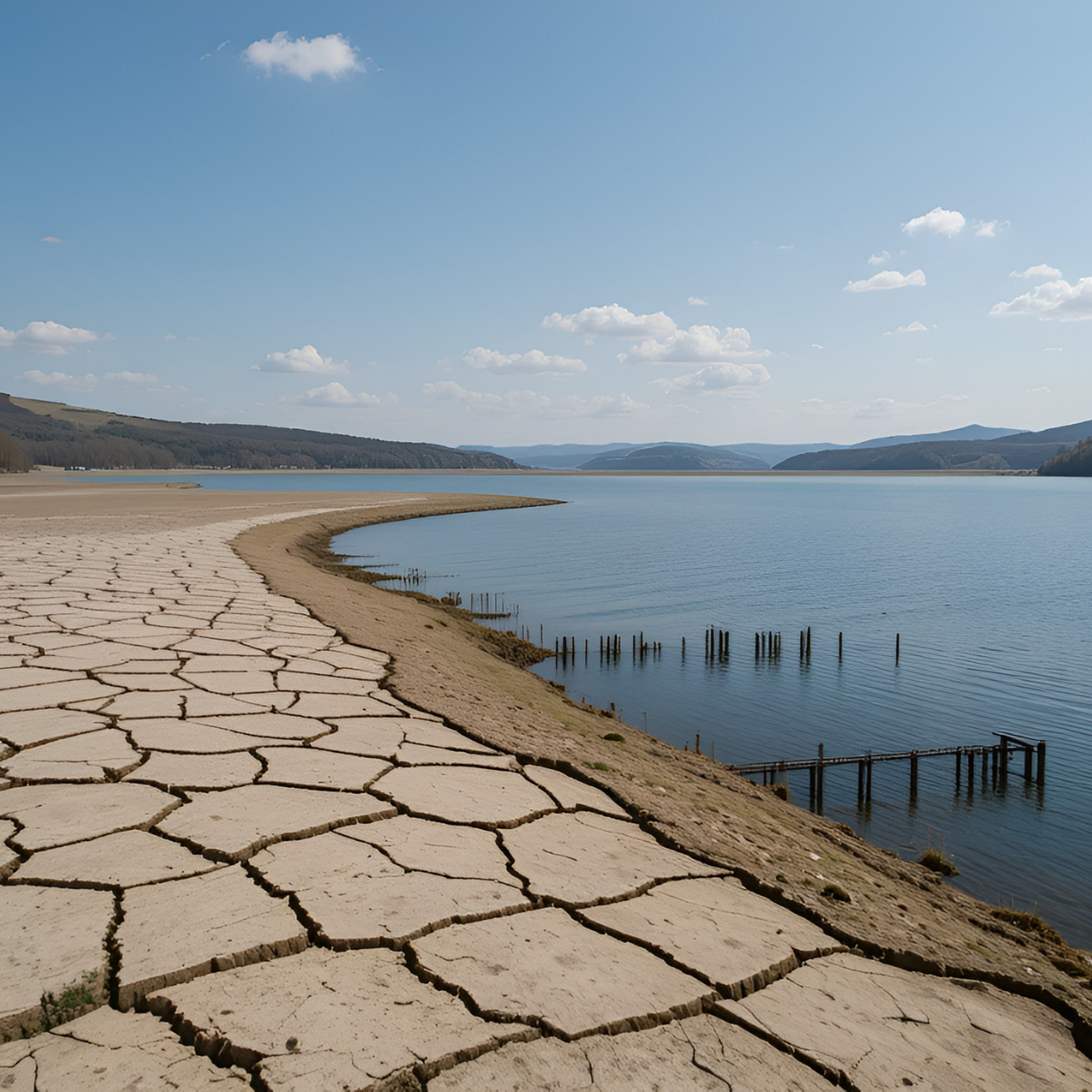World Day to combat Desertification and Drought 2025

Desertification and drought are two of the most pressing environmental challenges of the 21st century.
Exacerbated by climate change, the devastating effects of both can be felt across the globe, with an estimated 40% of the world's population impacted by water scarcity events. As global temperatures continue to rise, and severe weather events increase, regions across the globe face the potential for increased frequency and severity of droughts, often progressing rapidly and unexpectedly.
As of 29th May this year, a drought was officially declared in parts of the UK, having experienced the driest start to Spring in over 130 years. Whilst the recent rainfall at the start of June has helped to stabilise concerns, uncertainty for the months ahead still remain.
How is the UK landscape affected by drought?
Droughts do not discriminate. From our agricultural clients through to food and drink manufacturers, Envireau Water witnesses first-hand the consequences of such events across our sectors of expertise. As water availability and quality come under increasing pressure, the ripple effects can be severe. From reduced crop yields to limited production capabilities, the environmental and economic impacts can be felt by our clients across the UK.
Are there different types of drought?
Despite numerous debates regarding its exact definition, there are several commonly used descriptions to highlight the different types of drought, including:
Hydrological drought: This type of drought is associated with the effects of periods of precipitation shortfalls on surface or subsurface water supplies in groundwater, reservoirs, rivers, and streams. They can cover extensive areas and have a lasting impact on the surrounding environment for months or even years.
Agricultural drought: Refers to conditions in which soil moisture is insufficient to sustain crop growth and production. It is particularly susceptible to high temperatures and drying winds, which greatly increase the soil moisture deficit, leading to crop failure if irrigation is not applied.
Engineering drought: Engineering drought occurs when a water supply system is unable to meet increased demand brought on by a heatwave or a hydrological drought.
Ecological drought: The final type of drought, this can be defined as the prolonged and widespread deficit in soil moisture or biologically available water that imposes multiple stresses on terrestrial and aquatic ecosystems.
Regardless of the drought type, regulators will closely monitor the situation, providing irrigation prospect reports and updates on dry weather conditions. At Envireau Water, we work in partnership with our clients to introduce resilience measures, recognising that the sustainability of your water supply is crucial to your business.
How does soil quality link to drought and desertification?
Soil quality plays a crucial role in both drought and desertification. Healthy soil can help to mitigate drought by storing and retaining more water. Conversely, when drought occurs, it often reduces soil quality resulting in decreased ability to retain water and nutrients. This all contributes to land degradation and - in extreme cases - to desertification.
Is desertification an issue in the UK?
Desertification isn't an immediate threat in the UK; however, with climate projections indicating more frequent periods of hotter and drier weather, and an increased likelihood of more frequent droughts, there is a long-term risk of accelerating land degradation—an increasingly concerning issue across the UK and a key contributor to desertification.
This World Day to Combat Desertification and Drought, it is crucial that consideration is given to both short-term and long-term solutions to help mitigate the consequences of drought across the country. With a predicted drier-than-average summer ahead, we cannot stress enough the importance of reviewing and increasing the resilience of your water supplies where necessary.
Our dedicated team, comprising
Tamsin Morey and Harriet Robson are specialists in water management and are on hand to help you. Contact info@envireauwater.co.uk, or call
01332 871 882 to access their services and support.
About Envireau Water
Envireau Water is a team of expert water scientists and engineers who provide guidance on the management and regulation of natural water systems across the UK. By working collaboratively with our clients and the regulators, we deliver robust, sustainable solutions that meet the requirements of all stakeholders. With a loyal client base and our ability to work seamlessly throughout the four nations of the UK, many of our clients know us individually and trust us to find resolutions to their water problems for years to come.







